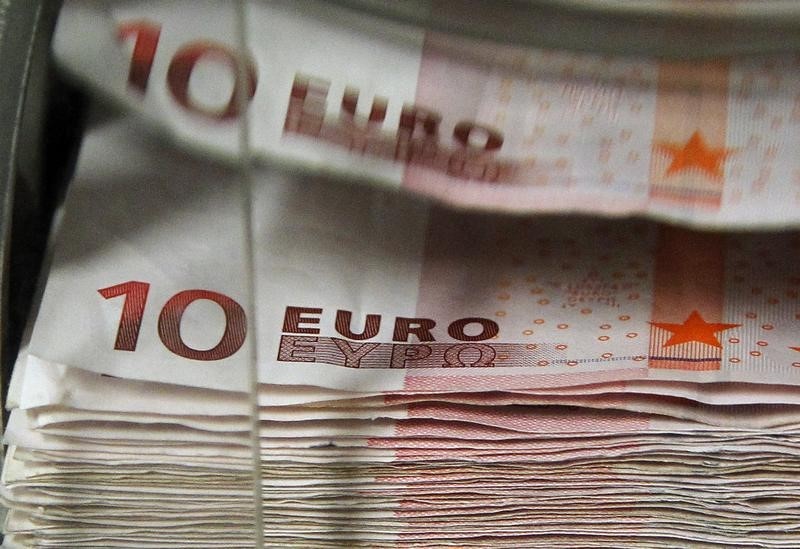* Italy president vetoes single currency critic as econmin
* Euro up, but bounce limited on longer-term worries towards Italy
* Dollar-yen, Aussie edge up as broader risk aversion ebbs for now (Adds details and quotes, updates prices)
By Shinichi Saoshiro
TOKYO, May 28 (Reuters) - The euro crawled off a 6-1/2-month low against the dollar on Monday, catching its breath after Italy's president tried to allay investor worries about political unrest in the country, although the prospect of a near-term election capped gains.
The euro was 0.45 percent higher at $1.1703 EUR= after falling on Friday to $1.1646, its lowest since mid-November, losing more than 1 percent on the week.
The common currency was up 0.45 percent at 128.065 yen EURJPY= after sinking on Friday to an 11-month low of 127.165.
The euro was seen to have received a mild lift after Italian President Sergio Mattarella on Sunday rejected Paolo Savona, a vocal critic of the single currency, as the economy minister. The two populist parties attempting to form a coalition in Italy had pushed for Savona to be appointed to the pivotal role. the euro's bounce was limited as an early election in Italy looked inevitable as the far-right League and anti-establishment 5-Star Movement abandoned plans to forge an alliance after their choice of economy minister was vetoed. League and 5-Star Movement parties could expand their influence even further if a re-election is called, and Italian politics will remain unstable," said Masafumi Yamamoto, chief forex strategist at Mizuho Securities in Tokyo.
"The euro zone also faces low inflation and slowing growth, limiting the euro's rise and leaving it vulnerable to fresh downside risks."
Adding to the unrest in Europe, Spain's prime minister, Mariano Rajoy, was threatened with no-confidence motions and demands for a snap election. euro has managed to bounce, going through a bit of a consolidation. But fundamentally, it is still a 'sell' for the currency," said Junichi Ishikawa, senior FX strategist at IG Securities in Tokyo.
"Euro zone economic fundamentals are the trunk and the region's political woes are the protruding branches, and both are facing headwinds right now."
Data last week showed German PMI data fell to a 20-month low in May indicating that economic momentum in Europe's biggest economy was faltering and European Central Bank minutes of its April meeting showed policymakers were worried about a more pronounced slowdown in the eurozone and political uncertainty in Italy.
The dollar index against a basket of six major currencies dipped 0.2 percent to 93.988 .DXY after rising to 94.248 on Friday, its highest since Nov. 14.
The greenback was up 0.05 percent at 109.400 yen JPY= after going as high as 109.830 on a slight ebb in risk aversion after U.S. President Donald Trump said on Sunday a U.S. team had arrived in North Korea to prepare for a proposed summit between him and North Korean leader Kim Jong Un. had initially pulled out of the summit last week, which had sapped broader investor risk appetite and helped push the dollar to a two-week trough of 108.955 yen on Thursday.
The Australian dollar, which is sensitive to shifts in risk sentiment, gained 0.25 percent to $0.7569 AUD=D4 after shedding 0.4 percent on Friday.
The New Zealand dollar advanced 0.4 percent to $0.6945 NZD=D4 after losing 0.2 percent on Friday.
The Canadian dollar extended Friday's losses to touch C$1.2992 per dollar CAD=D4 , its weakest since May 8.
The loonie had retreated roughly 0.8 percent on Friday as crude oil prices tumbled.
(Editing by Sam Holmes)
